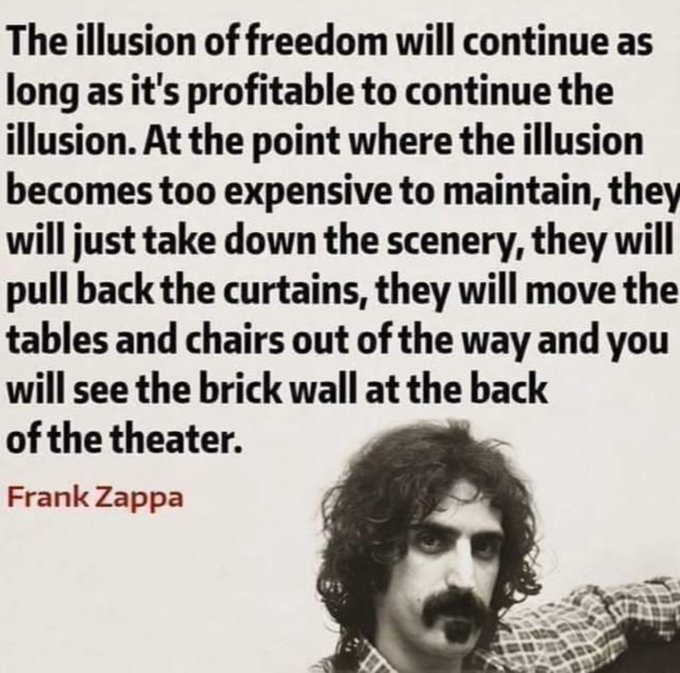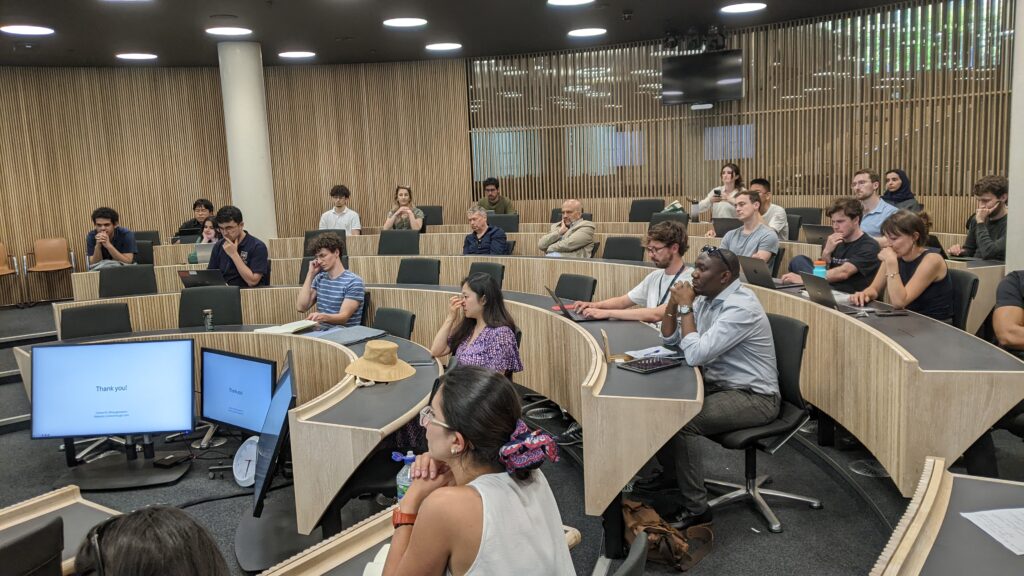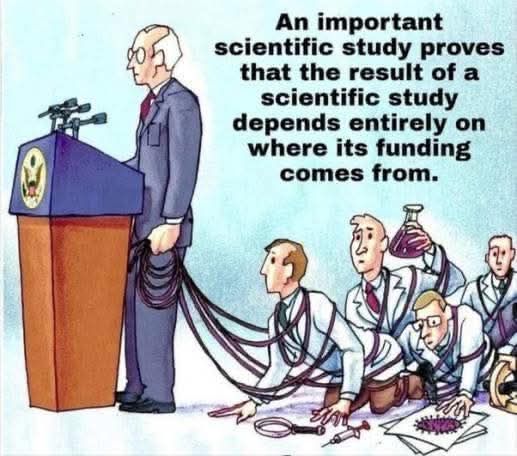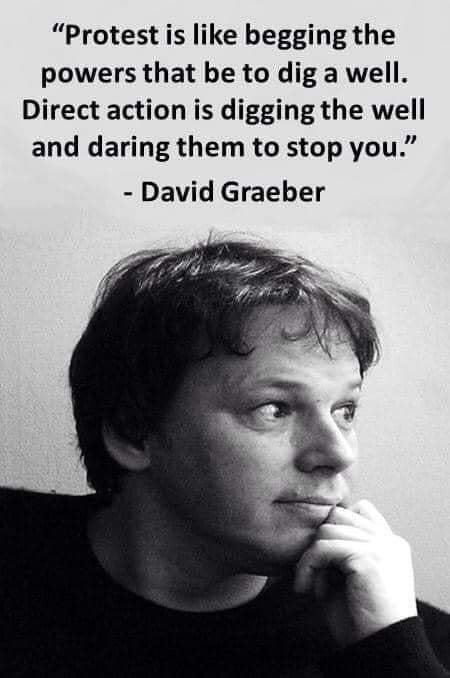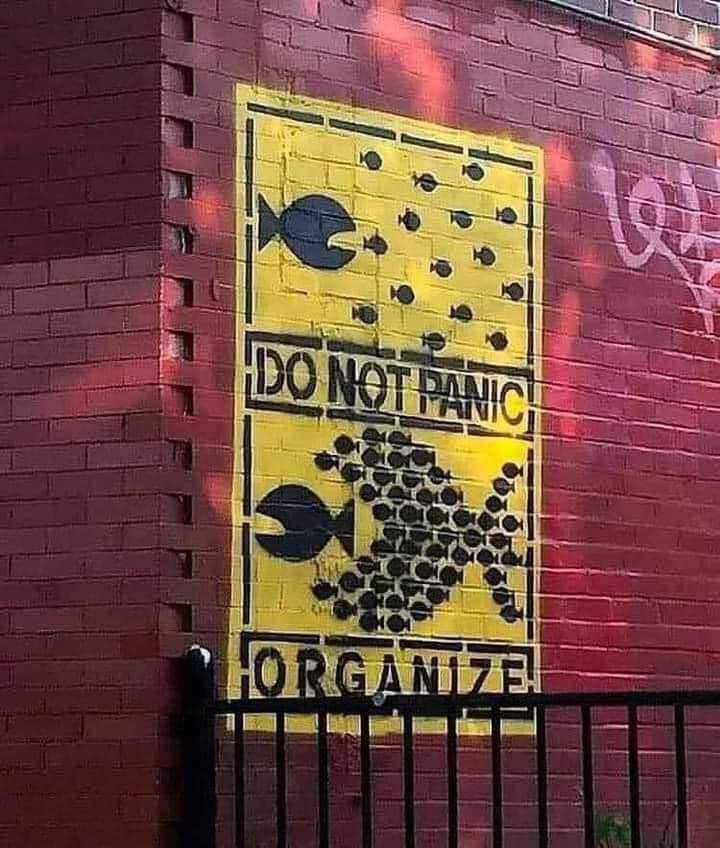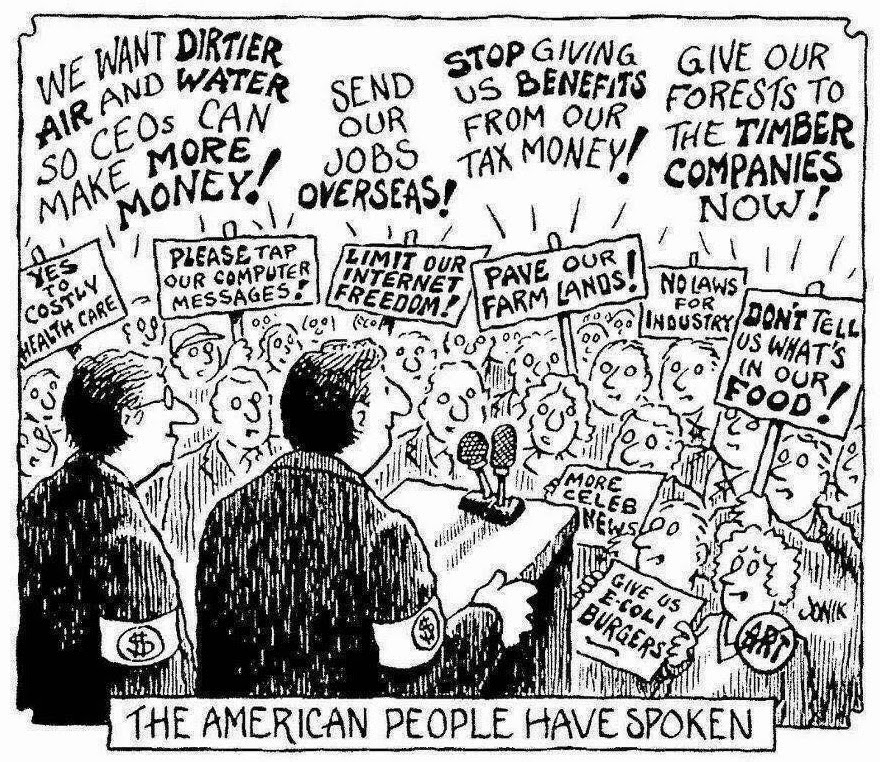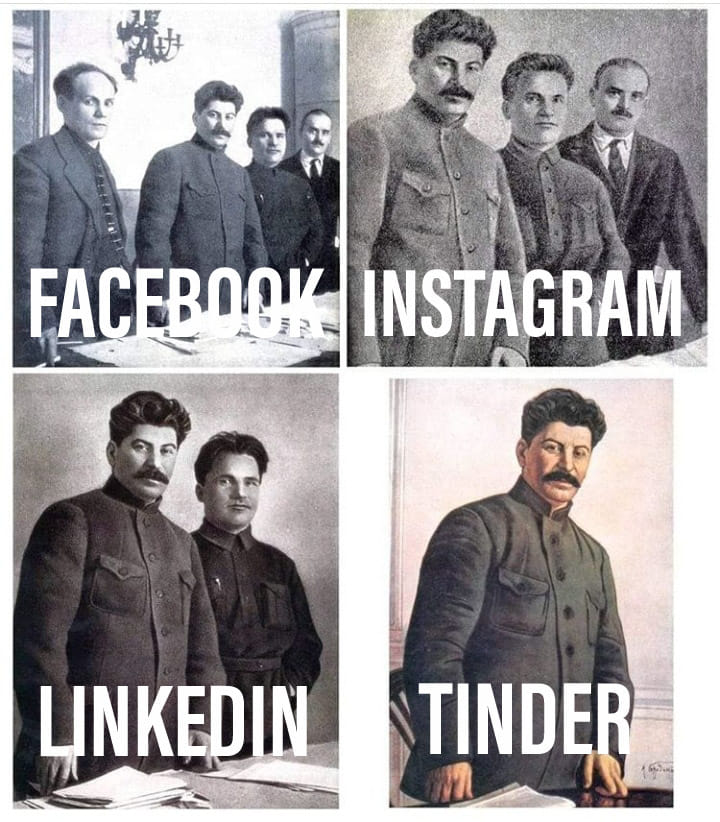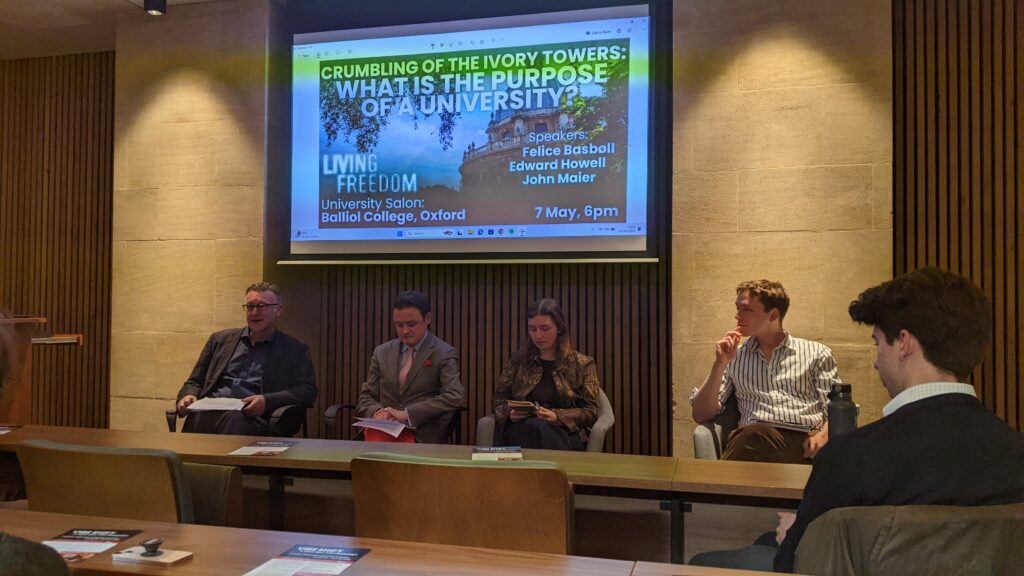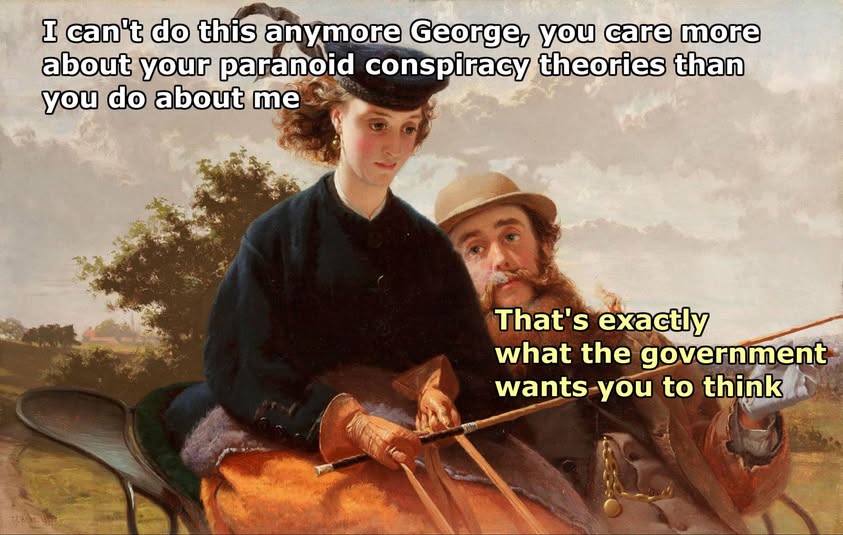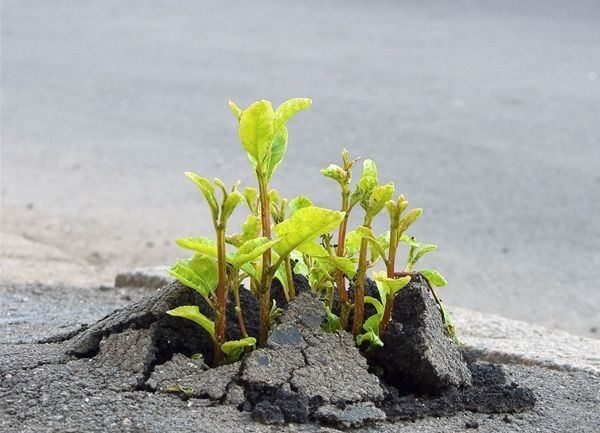The #nastyfew are now building bunkers, literally, escaping with their bodyguards when the shit hits the fan. That’s the plan. No fixing the mess, no community care – just winning and escape. It’s #deathcult logic all the way down from now on – with pushing #geekproblem tech fixes as a cross fingers wing and a prayer, to stop any grassroots drift to green sustainable alternatives.
This is simply the next stage of the #deathcult worship of endless growth, and infinite tech “solutions”. It’s now about rebooting capitalism, so the machine can keep grinding. #NothingNew in a very bad way. This is the normal empathy for corporations, and brutal Darwinism for actual people like you and me. The #dotcons of big tech are moving visible to the business of manufacturing distraction to avoid facing the collapse they pushed for the last 20 years. The mess of #AI and #Bitcoin are energy black holes, sucking resources while pretending to be futuristic.
It should now be “common sense” that colonialism never ended – it rebranded. That’s how the consumerist growth cult started: exploit, extract, repeat. Capitalist “progress” is cancerous, more #GDP doesn’t mean better life – growth isn’t about thriving, it’s about churn. #TechCurn. The current #mainstreaming solutions are always more tech, more control, more conferences, and less reality. The #GeekProblem, with the #techbros philosophical inspiration: Nietzsche, or rather, a cherry-picked remix by his fascist sister, stitched together without context. The wannabe’s quotes “Will to Power” as gospel to justify trying to control the rest of us.
To the #nastyfew, education doesn’t mean opportunity – it means instability. A literate person is someone who questions power, organizes, votes, and leave toxic relationships. A curious mind is unpredictable. A well-informed population is a threat.

They know that: A literate woman may not rely on a man for shelter. An educated Black or Brown voter may vote in their own self-interest, unlike the more easily manipulated MAGA base. A widely read immigrant may advocate for systems beyond the #deathcult of vulture capitalism – community care, cooperative ownership, real democracy.
Education creates the conditions for social mobility, leading to change and challenge, which the #nastyfew see as an existential risk to their self defined stratified order and elitist based statues. Keeping people in their “place” is essential to maintaining control. Stagnation is strategic.
This is why capital flows into campaigns to undermine grassroots media, activists, public schools, libraries, independent publishers, school boards, and non-corporate scientific research institutions. The #nastyfew goal isn’t only profit – it’s cultural hegemony. Anything that feeds critical thinking or encourages civic imagination becomes a target.
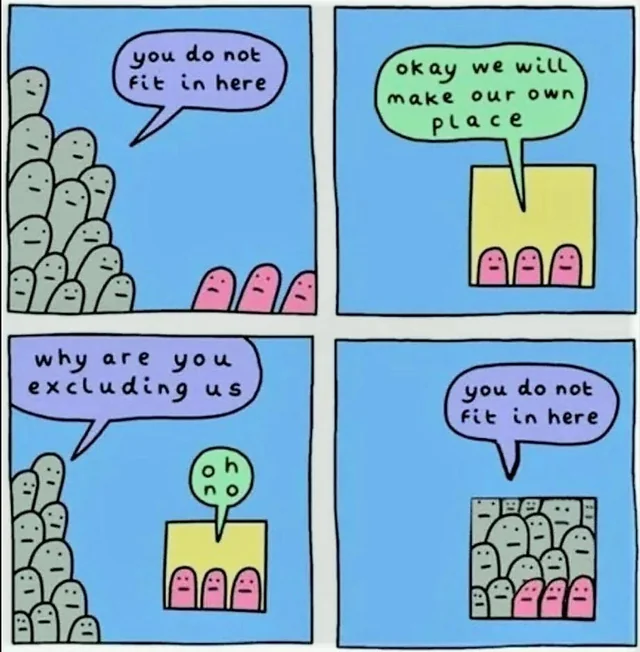
From a progressive mainstreaming point of view, this agenda includes:
- Attacks on Wikipedia, a freely accessible repository of public knowledge.
- Defunding and demonizing public education: Jacobin, The Guardian.
- Suppressing libraries and their democratic role: EveryLibrary, FOPL.
- Distorting book publishing to favour reactionary ideologies: WSJ, The Atlantic.
- Orchestrating book bans: NBC.
- Funding climate denial and right-wing policy pipelines: Greenpeace, Popular Information.
It’s a war on #4opens, public knowledge, disguised as common sense “parental rights” and “free markets.” In truth, it’s about maintaining control by keeping people uninformed and isolated, a core part of #stupidindividualism we have all been #mainstreaming for the last 40 years.
Capitalism grew from historical processes rooted in enclosure, extraction, and the exploitation of people and nature. Liberal politics stabilise rather than challenge this, while promoting forms of (stupid)individualism that fragment collective power, making it harder for people to organise together against entrenched control.
When we defend grassroots projects, activism, schools, libraries, open-source platforms, small publishers, and public institutions, we are not just defending information, we are defending democracy itself. The battle for truth is inseparable from the battle for justice. We have to build our own compost piles, plant what matters, and ignore the bling. These #nastyfew and their billionaires funders aren’t saving us – they’re digging deeper bunkers and writing climate denial checks. It well pastime to stop playing the #mainstreaming game.
Post inspired by @Npars

